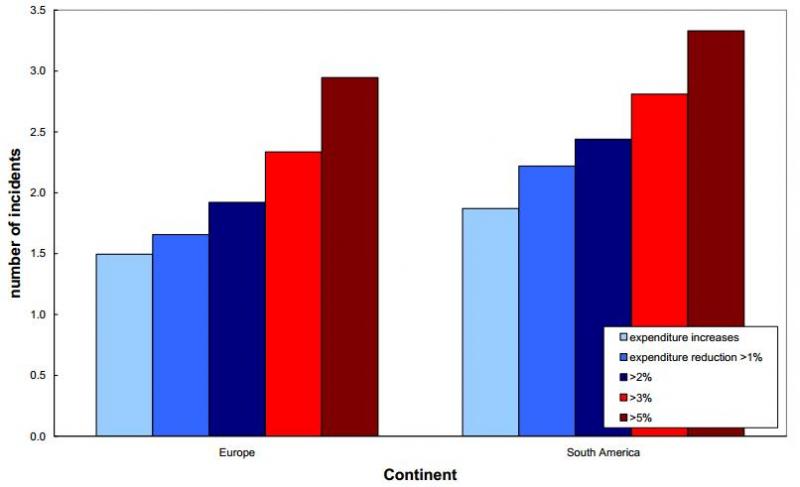Hans-Joachim Voth pulled Ferguson up on this in a seeming contradiction, as Ferguson is apt to argue that the legacy of empire - particularly the British - is the basis of most of the good institutions in the lucky ex-British colonies. So which is it? Is it the fortunate effects of colonialism, or the new Eastern paradigm that lead to succesful growth or empire formation. Would the real Niall ferguson please stand up.
Perhaps the distiniction is too stark, but the real Ferguson did stand up, and said that he had predicted (in Colossus) that the US would not be as good an empire as the British Empire was.
A masterful feint to the right with a left side-step leaves this round unresolved, so in the interest of settling this, lets look at Voth’s presentation today on austerity, which had some really neat (and consistent) results.
His paper uses a century of data-points on government expenditure in Europe and Latin America linked to a variety of public disorder events (ranging from anti-government demonstrations to assassination attempts). The findings, in a single picture, are that the more government cuts, the higher the number of civil unrest incidents. [Light blue bar means government expenditure increases, while the darkest red is a cut in excess of 5% on government expenditure.]

Coupled with Nick Blooms observation that unrest and uncertainty has a statistically negative impact on real economic variables, as investors get nervous and consumption falls, you get a scenario where austerity can start a vicious cycle. Moreover, government response to civil unrest is, in the data presented by Voth, usually followed by an increase in government expenditure, which may well lead to a net worsening of the fiscal position, compared to a situation with less austerity. A sustained argument against austerity, but with Ferguson not in attendance, I think we have to give this contest to Voth, on technical points.


